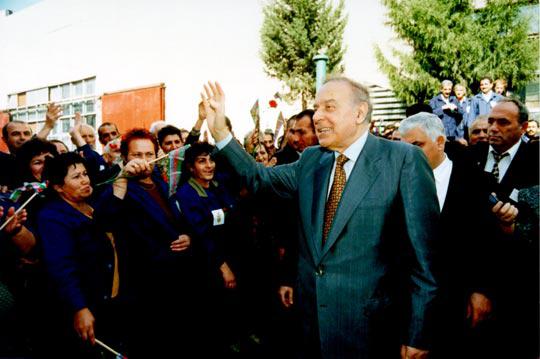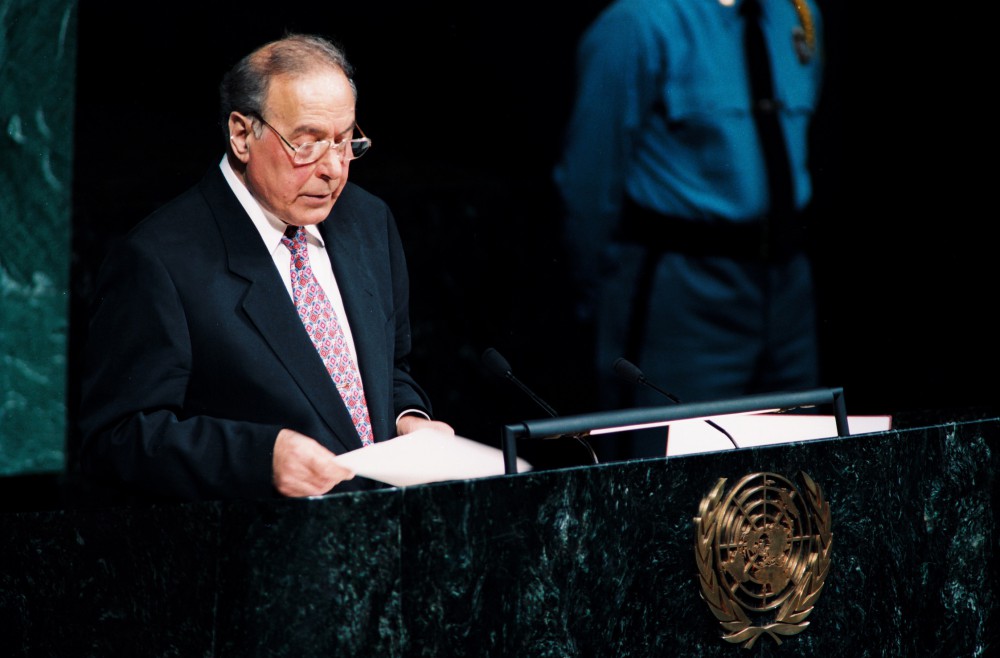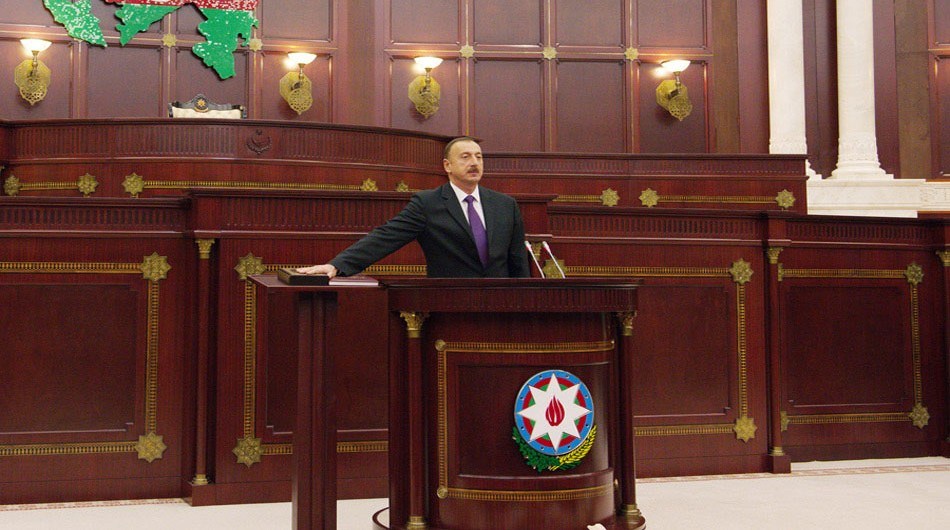
In 1991 the Azerbaijan Republic laid the foundation for the growth as an independent state. Turning a new page of its history, our republic made continuous efforts for the establishment of a democratic, legal and secular state based on national and humanitarian principles.
Since the first days of independence, the process of democratic and legal state development in Azerbaijan has faced various problems and obstacles. The republic faced a need to tackle problems resulted from ill consequences of the economic and political issues inherited from the Soviet totalitarian regime, Armenian separatism and military actions against Azerbaijan, sharp internal political confrontations and the danger of civil war, attempts of coup d'etat along with other severe political, social and economic problems and their implications.
Expressing the will of various circles of society and relying upon the determined support of the population the national leader Heydar Aliev made consistent efforts that created opportunities to halt the activities of the malevolent forces posing a threat to Azerbaijan territorial integrity and state independence. His leadership saved the republic from bloody civil confrontations and the danger of a complete collapse.
The return of Heydar Aliev to the leadership in Azerbaijan laid the foundation for the ideology based on such universal humanitarian values as independence, state formation, patriotism, justice, democracy, national progress, and secularity. Heydar Aliev's internal politics was aimed at securing the right of any Azerbaijan citizen for freedom and stability. Among the leading priorities of the activities of the national leader was the implementation of economic reforms, the transition to a market economy, the foundation of economic development, integration of Azerbaijan into the world economy, privatization program, and implementation of agrarian reforms.
In the formation of civil society, political pluralism and accelerated development of the multiparty system plays a special role. The history of the independent development of Azerbaijan features the enhancement of political pluralism, the appearance of new political parties, and their increasing role in the state's social and political life. This became possible due to the Azerbaijan state's commitment to the creation of opportunities necessary for the activities of all political parties.

Protection of the freedoms of expression and conscience is an inseparable part of civil society formation processes. In the Constitution of the Azerbaijan Republic freedoms of expression, opinion and conscience are validly secured. The primary protectors of the freedoms of expression and information, recognized as the key attributes of democracy, political pluralism, and civil society, are mass communication media.
The decree "On the additional efforts in the protection of freedoms of expression, opinion, and information in the Azerbaijan republic" marked a new stage in the implementation of the state's policy regarding the natural development of mass media and their dynamic transformation into a strong means of democratization. On the basis of the decree, the Chief Agency on the Prevention of State Secrets Spread to the Press and other Mass Communication Media at the Cabinet of Ministers was forfeit, and both the decree from 16 April 1992 on the introduction of military censorship and the decree from 15 April 1993 on the regulation of information spread was made void.
Like in the other fields, reforms of science and education have started since the second half of 1993.
After the historical return of Heydar Aliev, the elaborated and implemented policies aimed at the restoration of education facilities into normal operational mode, the transformation of education into the key attribute of the national progress, and the elaboration and implementation of the program regarding fundamental reforms in the area. In March 1998 the national leader signed the decree "On the establishment of State Committee on educational reforms in the Azerbaijan Republic"
One of the most fundamental innovations in general education was the transition to a new alphabet based on Latin symbols.
Azerbaijan National Academy of Sciences is a member of the International Association of Academies of Sciences founded in 1993 in Kyiv.
One the basis of the national leader Heydar Aliev's decree from 15 May 2001 the Academy of Sciences was named Azerbaijan National Academy of Sciences marking the achievements of the academy in the development of our science, its role in Azerbaijan nation's cultural and spiritual progress, its significance in the social life of the republic and the status of academic science as one of the guarantees of the state development.
In the years of independence, the Ministry of Health also underwent consistent and expedient reforms. At the first stage, most of the attention was focused on the improvement of the legislative framework of the public health care system to meet world standards.
One of the key achievements in the area of public health system reforms was the onset of private medical care. The legal and normative framework was developed in this area and the law "On the private medical services" was enforced.
Azerbaijan's re-attainment of independence enabled the sovereign country to integrate into the international sphere, express its opinions on various current events,  be represented in international organizations, and participate in those organizations' authoritative meetings. Azerbaijan was granted an opportunity to enter the international arena in various fields, including sport. Our sportsmen started participating in the World and European Championships under the flag of their country.
be represented in international organizations, and participate in those organizations' authoritative meetings. Azerbaijan was granted an opportunity to enter the international arena in various fields, including sport. Our sportsmen started participating in the World and European Championships under the flag of their country.
The contribution of the state to the development and brilliant accomplishments of sport, physical culture, and Olympic Movement, the areas with the key role in upbringing of physically and mentally healthy generations, fostering patriotism, the wider introduction of our republic at the international level, and the increase of its influence, is invaluable.
In the last years, with the purpose of the development of youth policy and modern youth movement sufficient works have been conducted at the state level to facilitate the establishment and operation of non-governmental children and youth organizations and implementation of relevant programs, with the legislative framework in this area also being improved.
The increase in the number of political parties, unrestricted operation of social organizations, elimination of censorship, the unrestricted publication of hundreds of titles, development of private radio and TV channels, political pluralism, freedom of opinion, democracy and civil society is in our country are evident.



